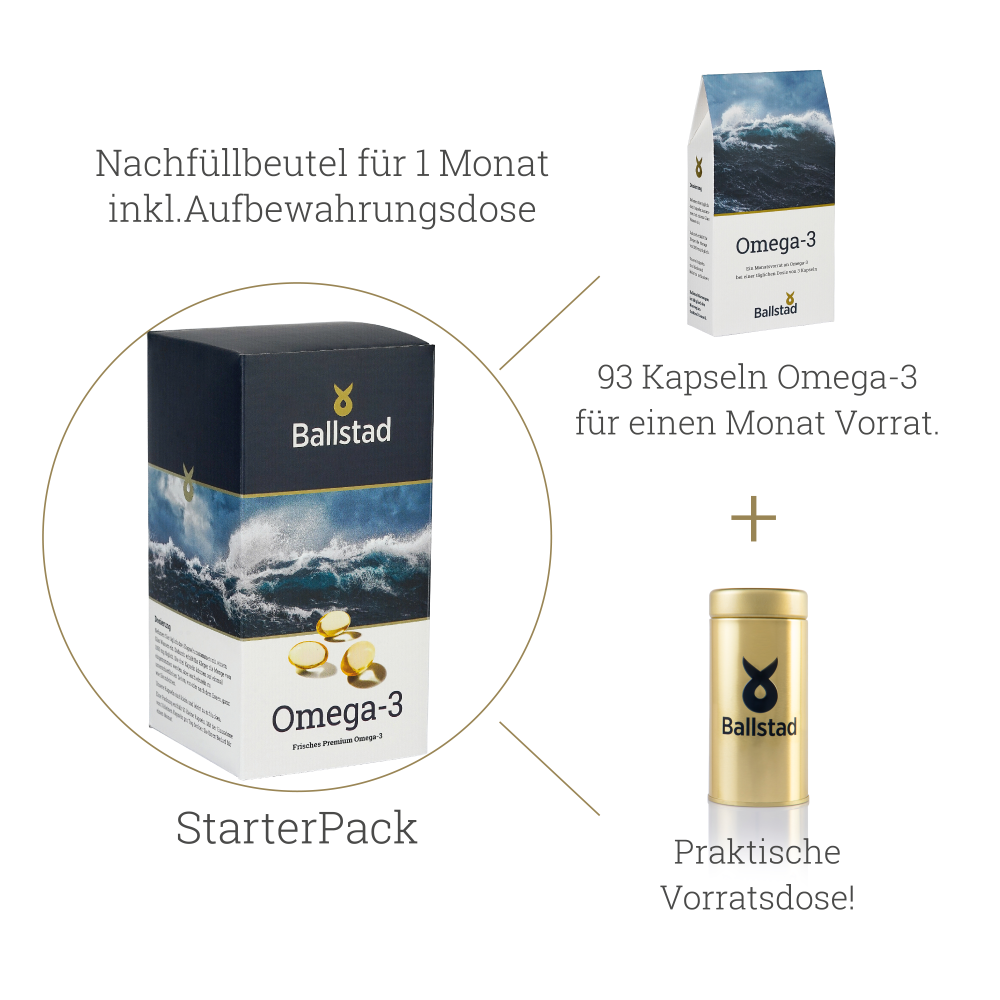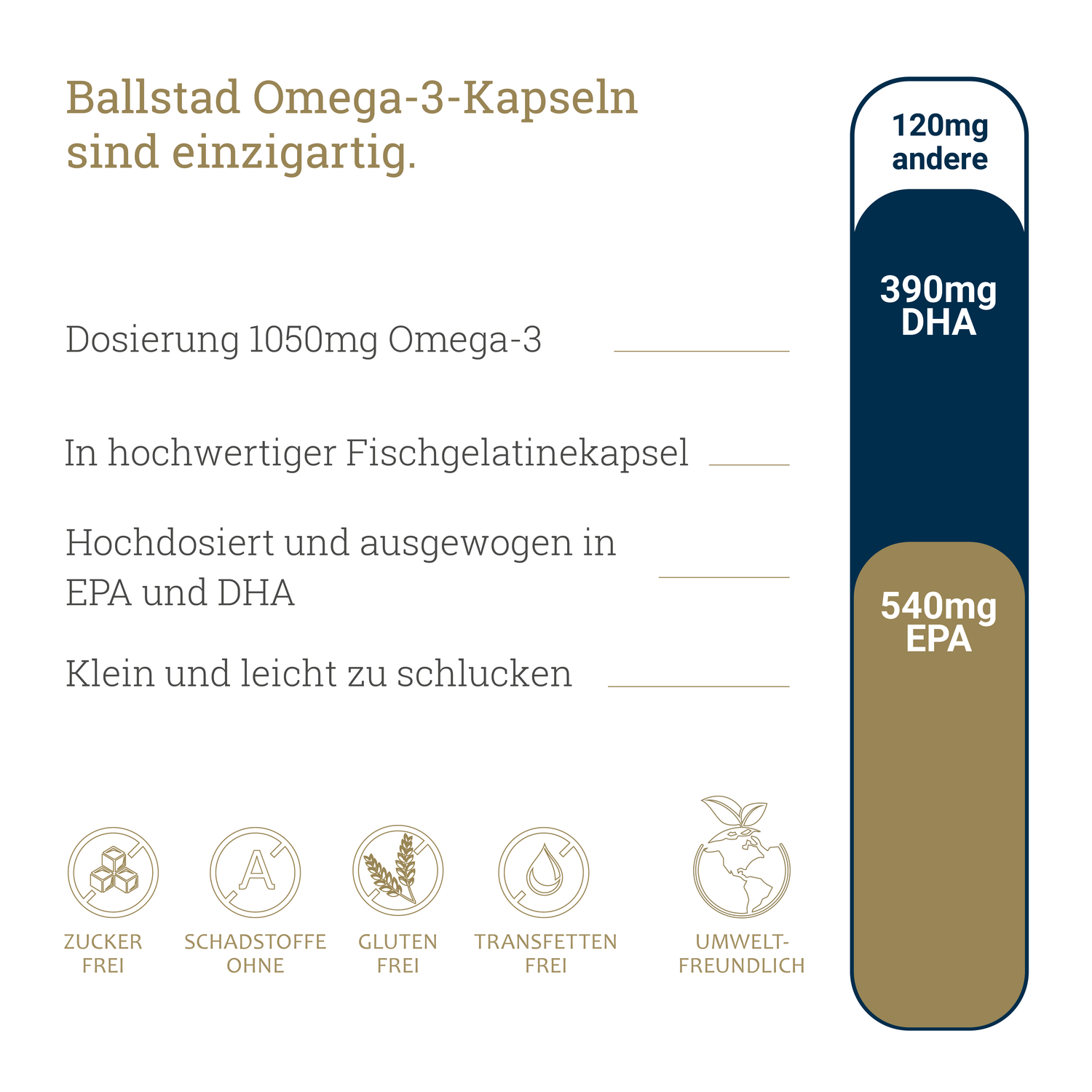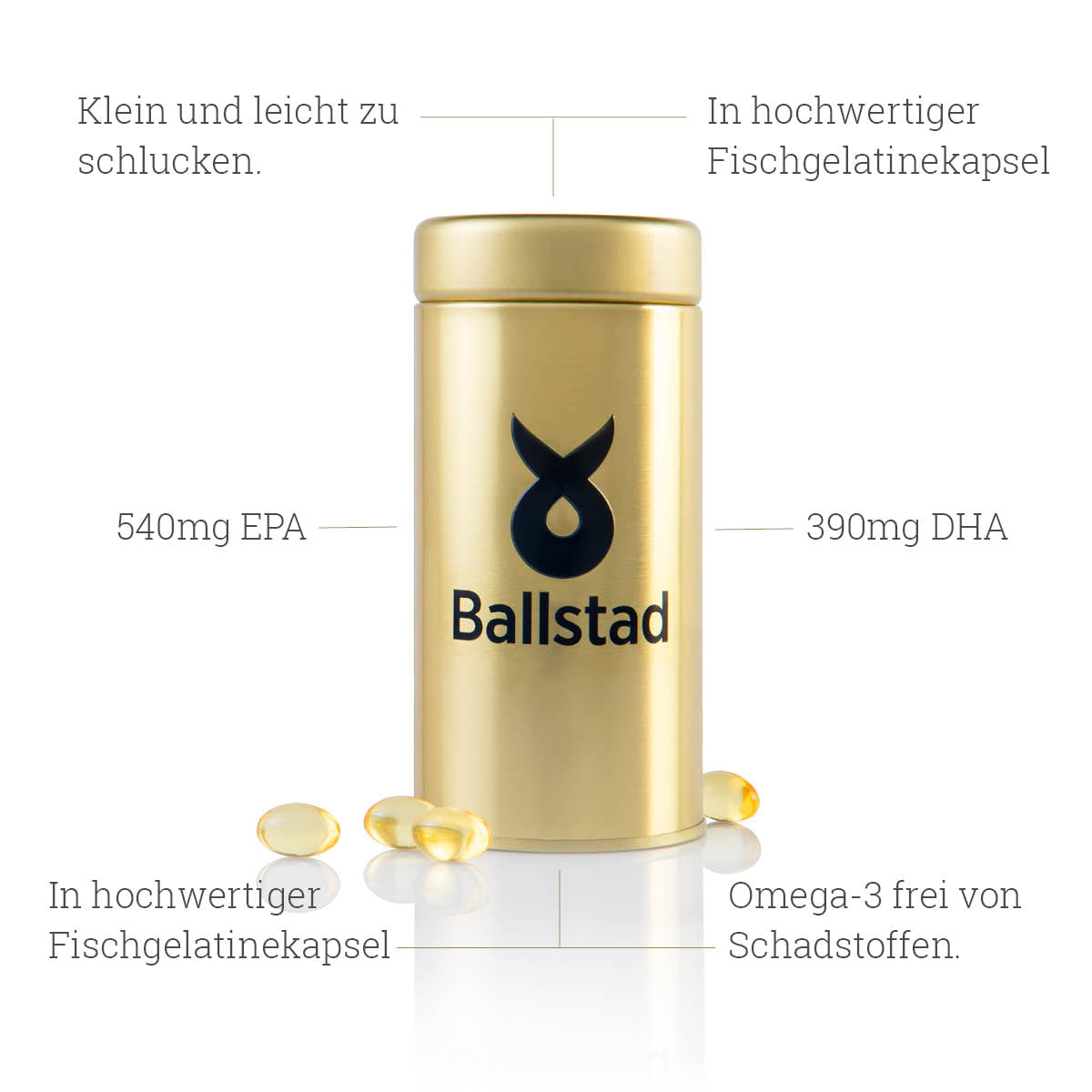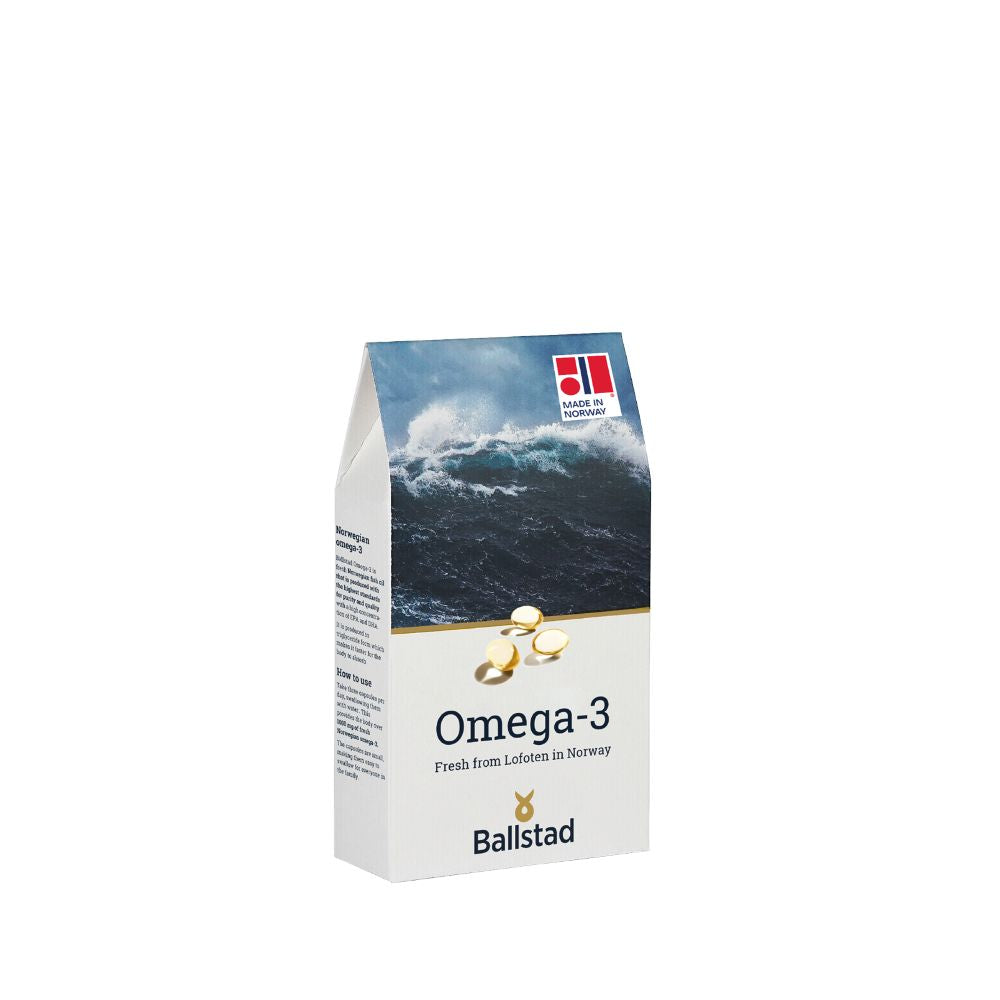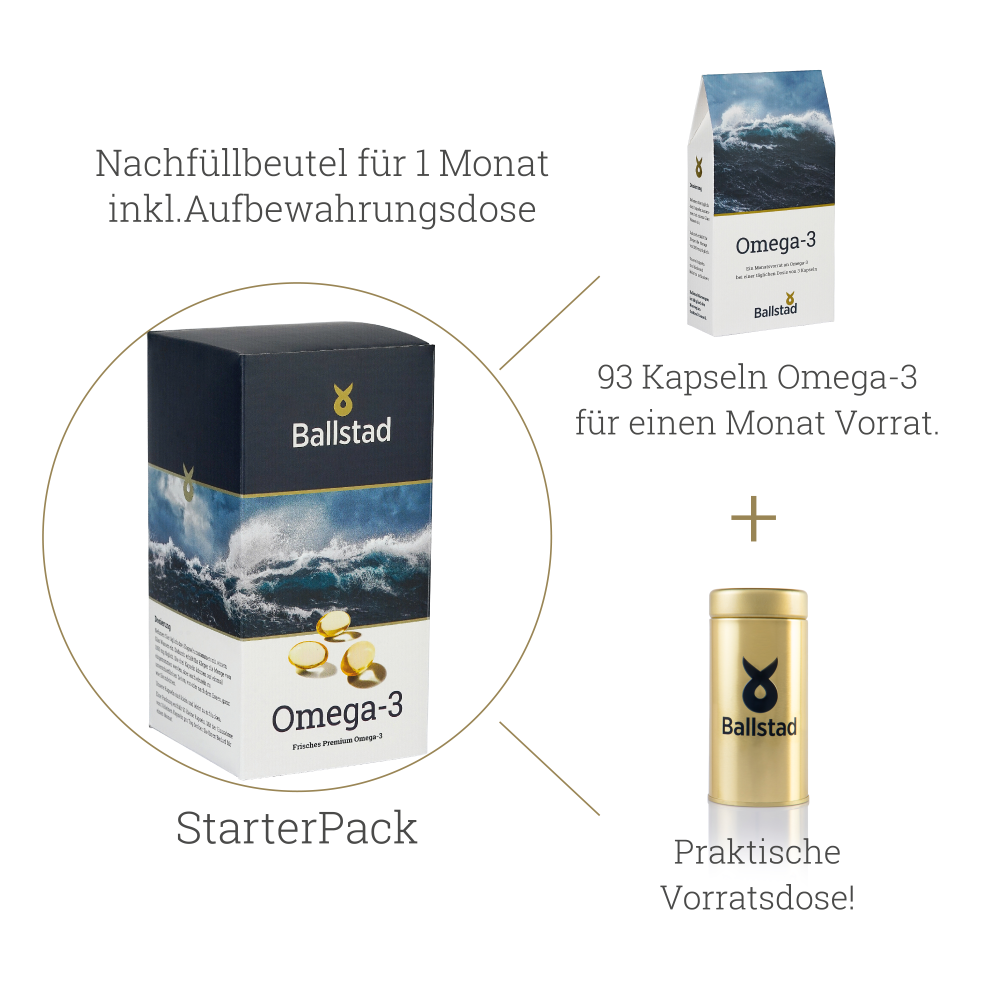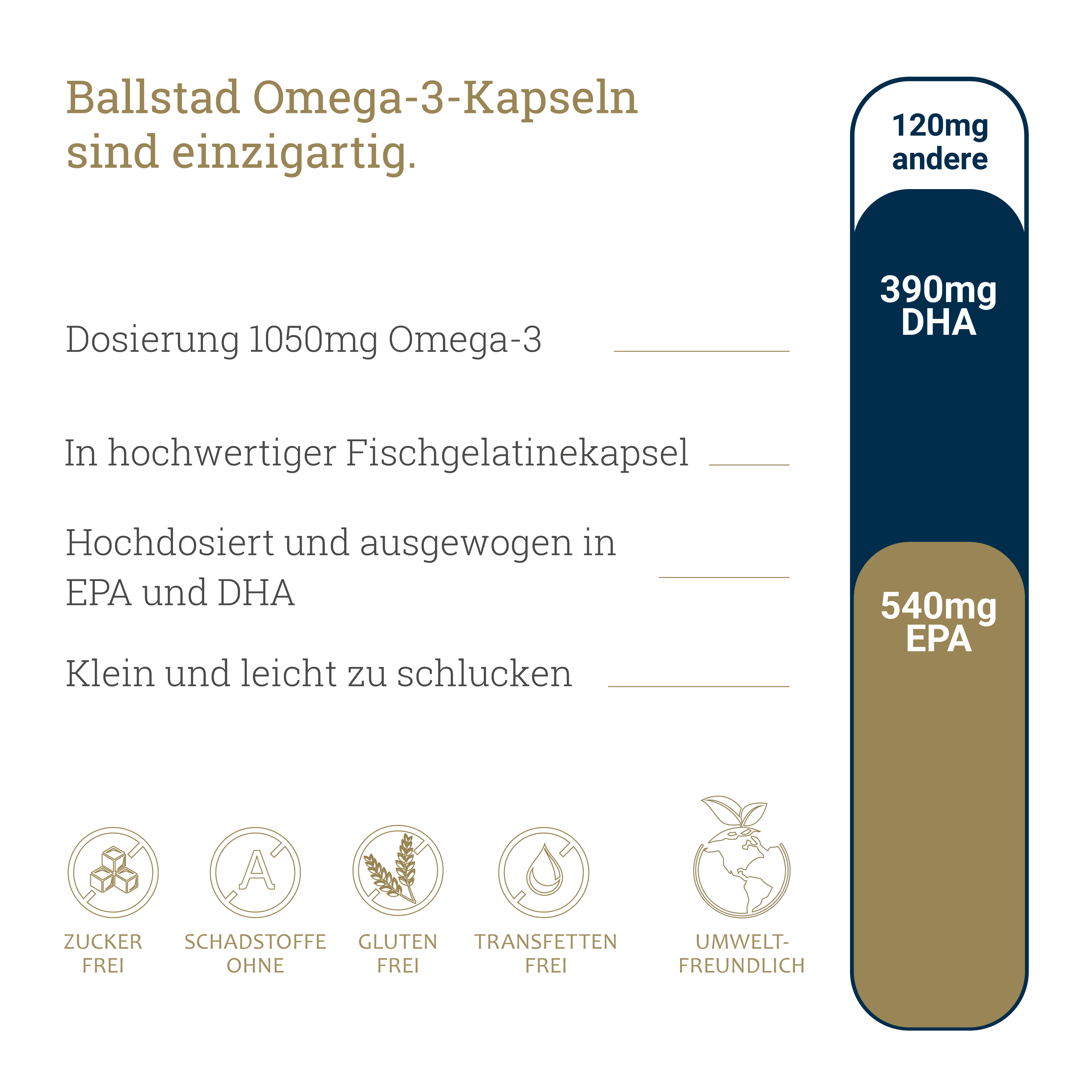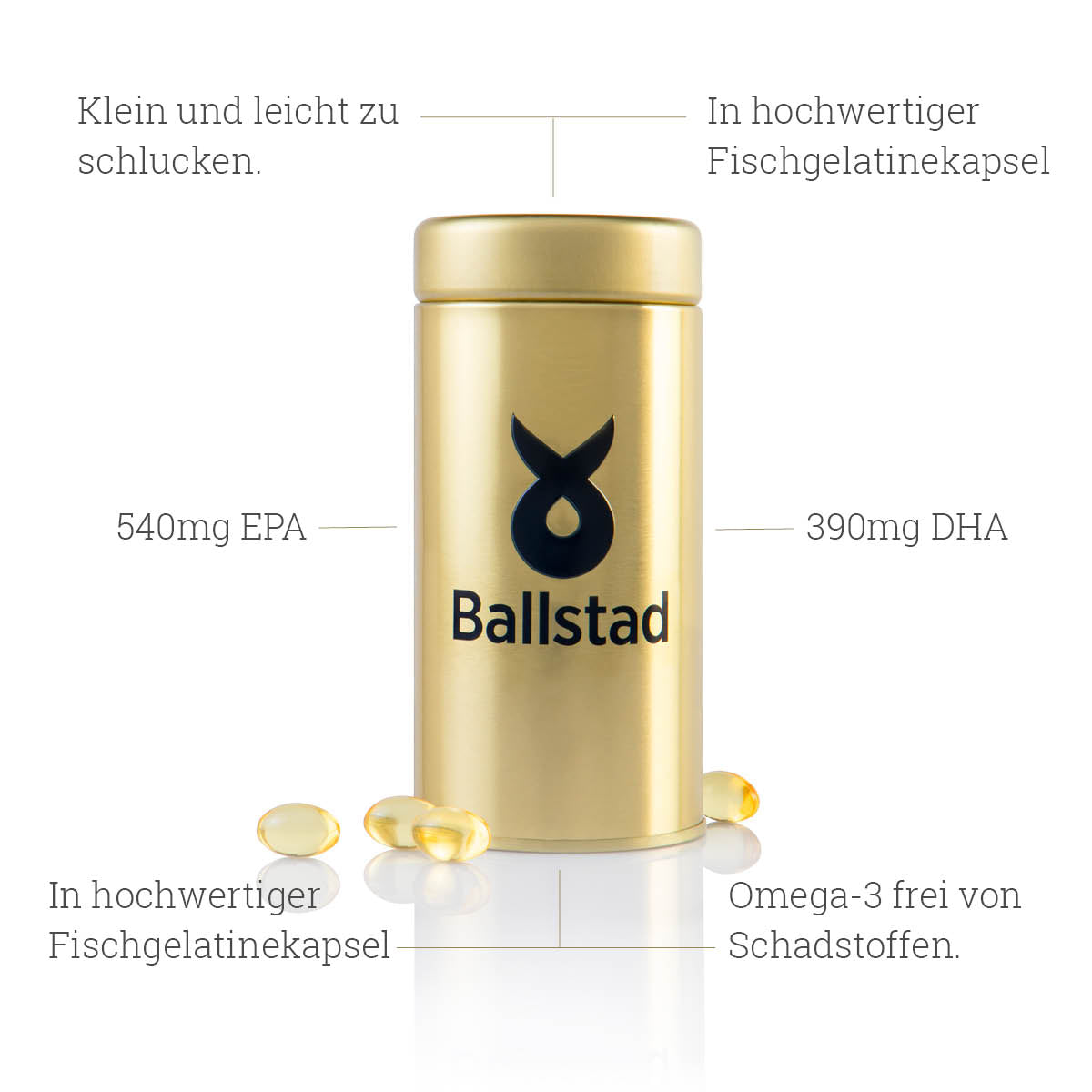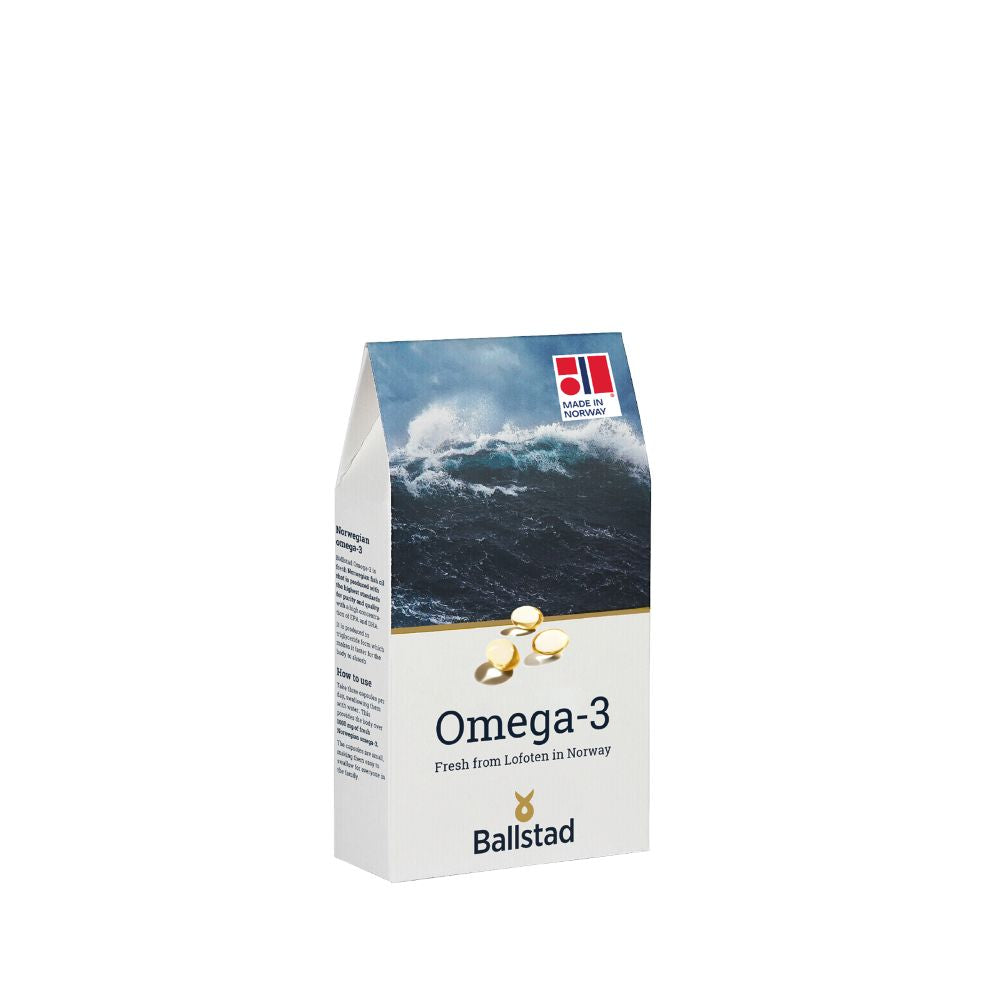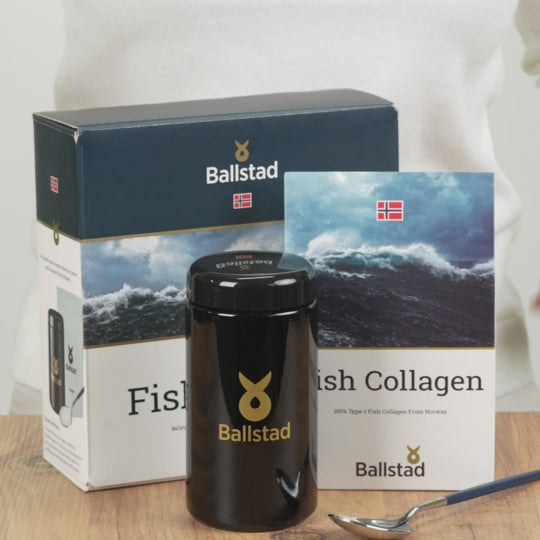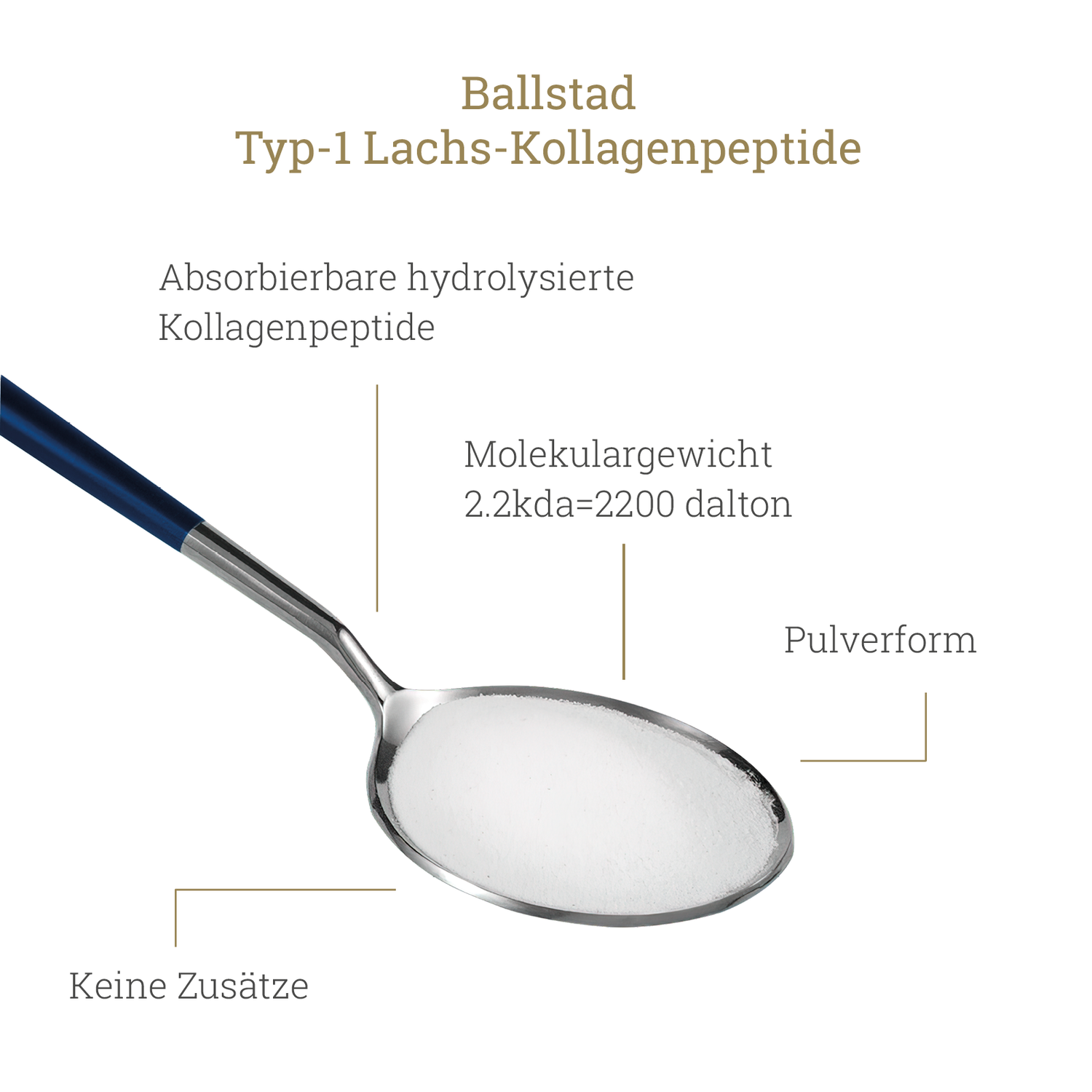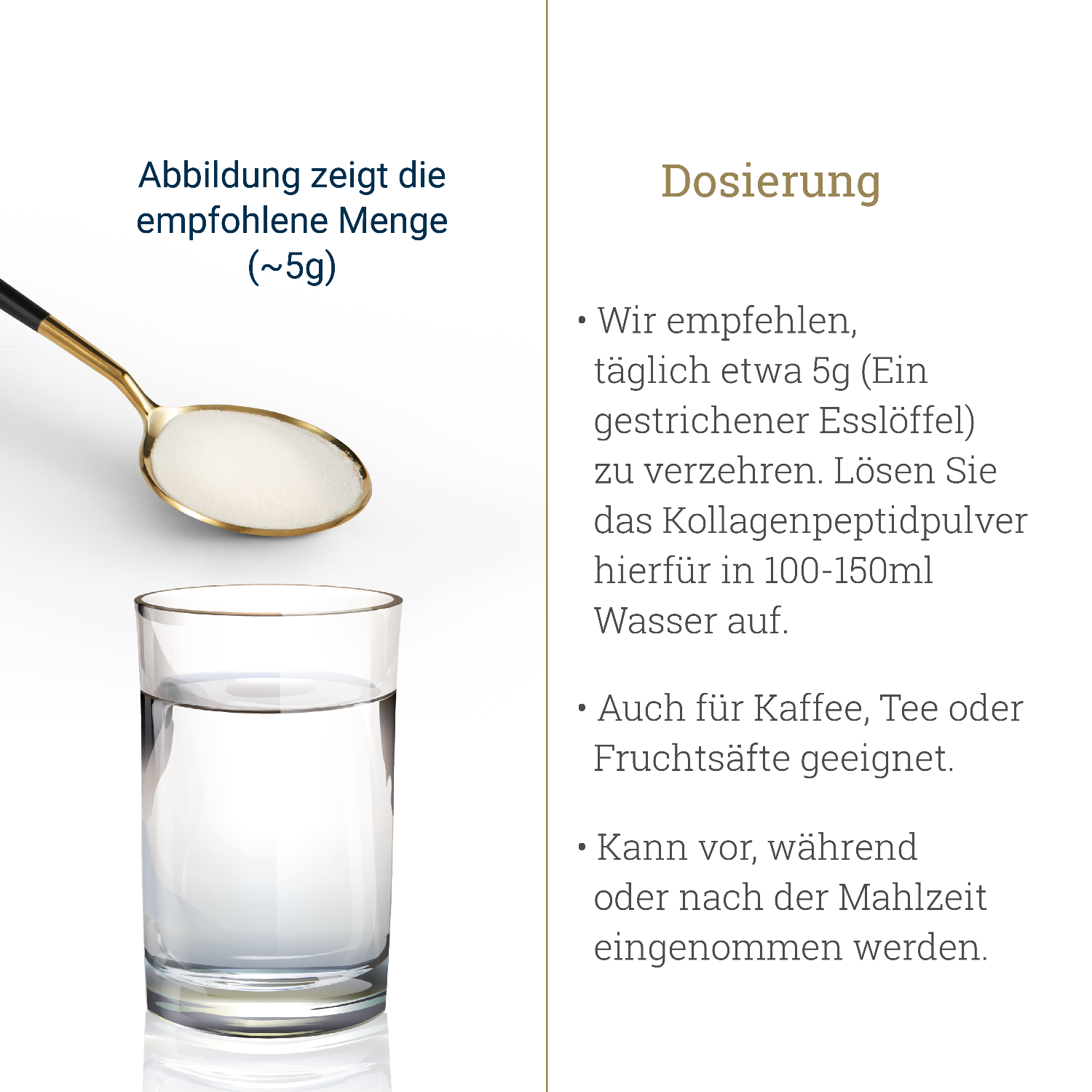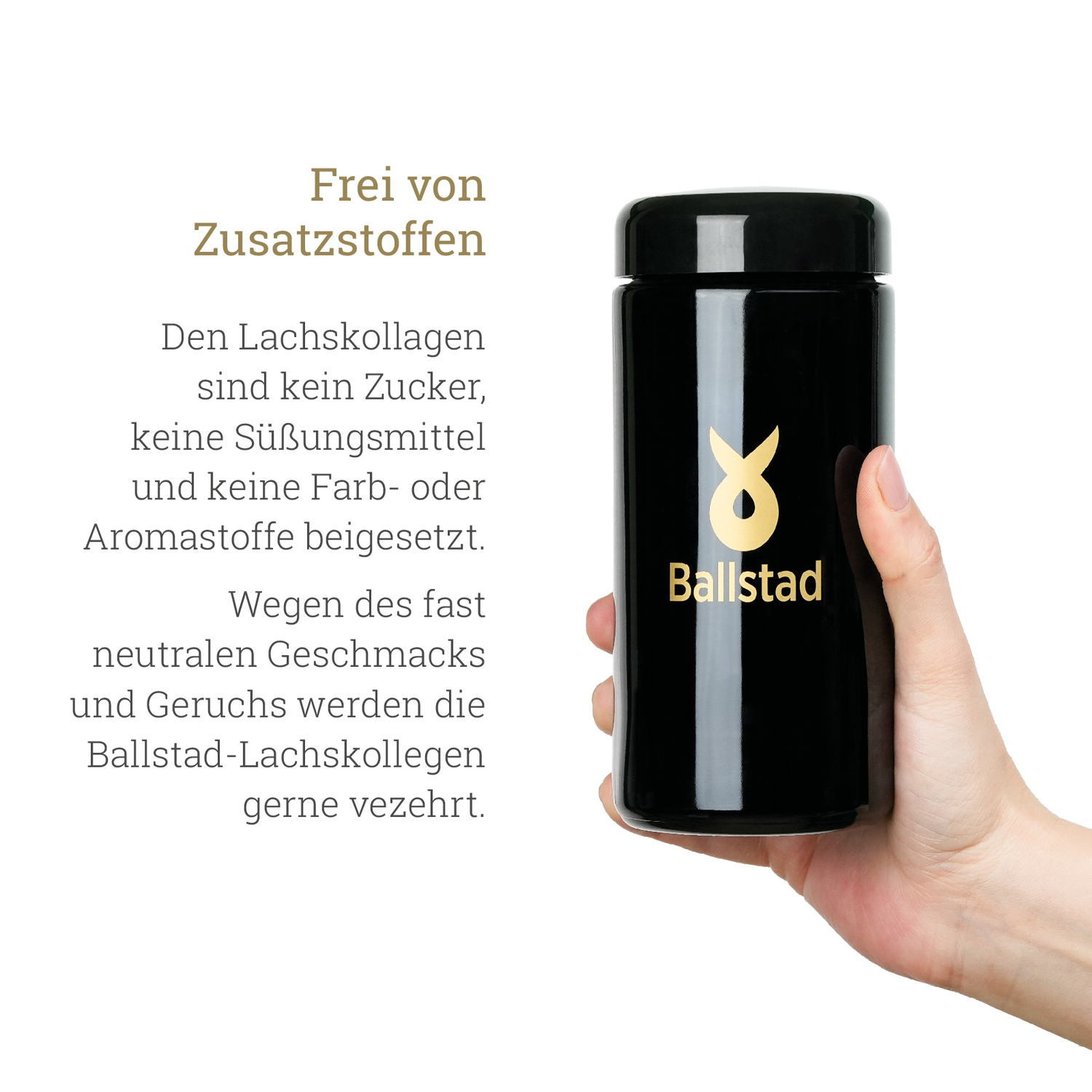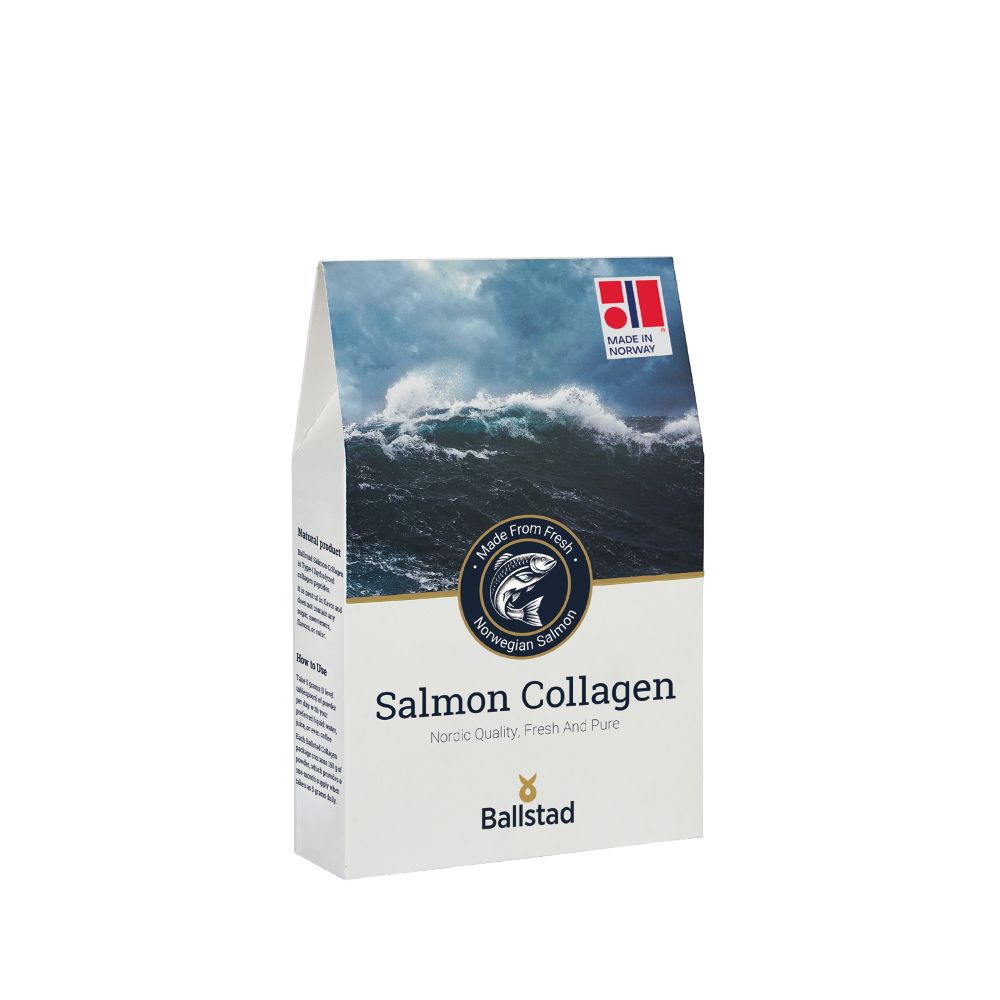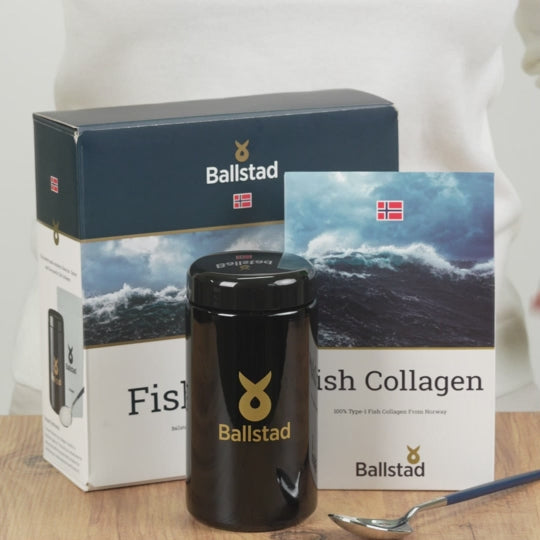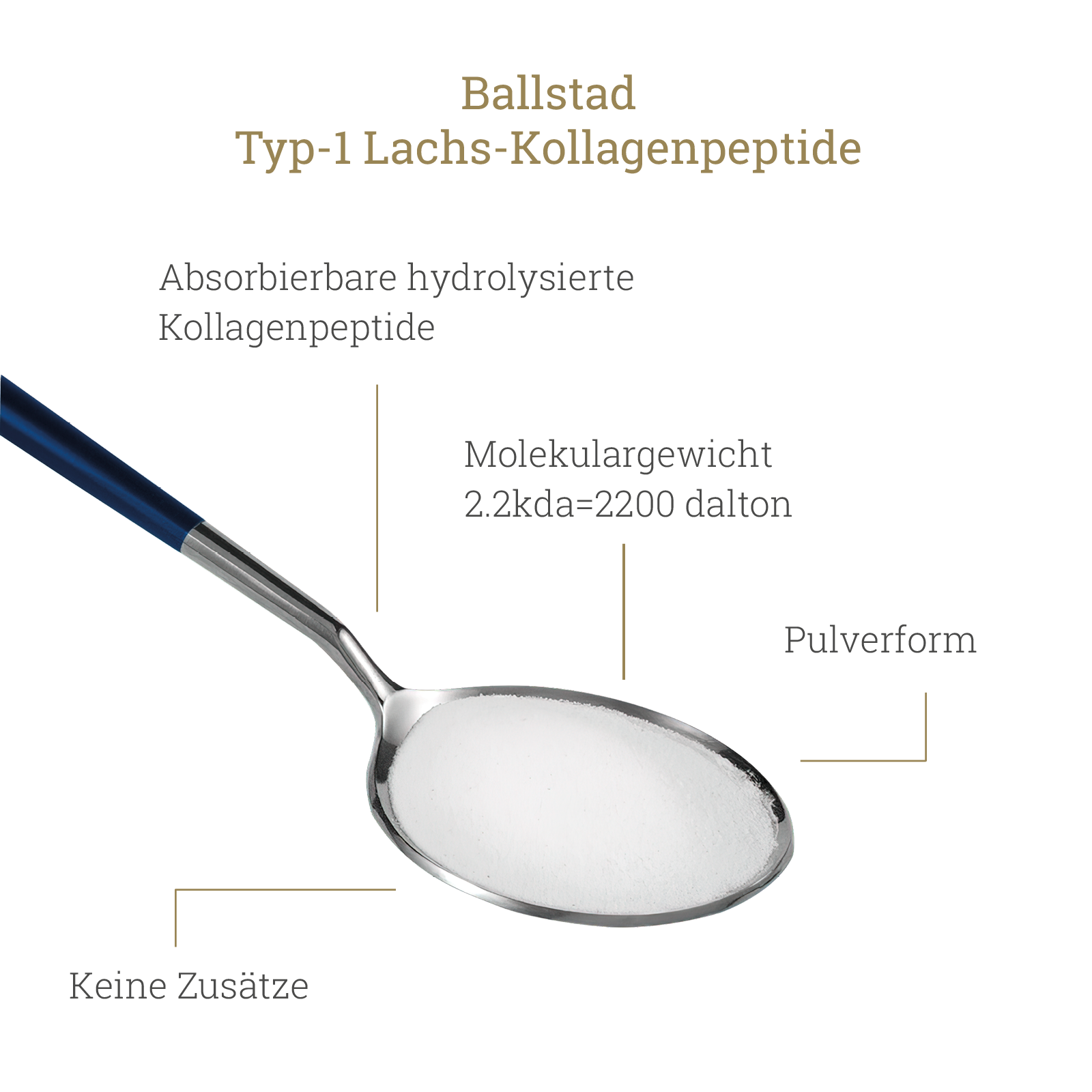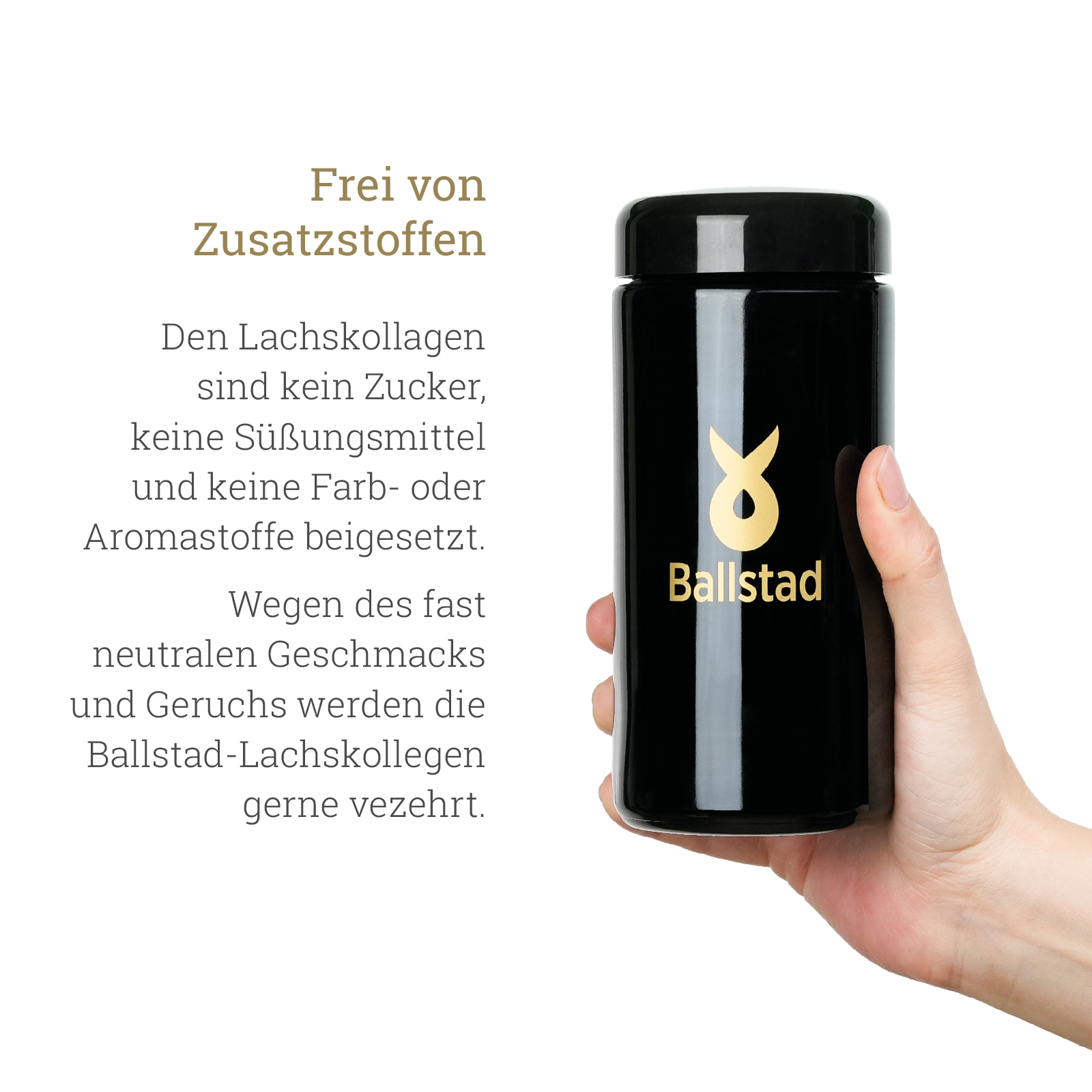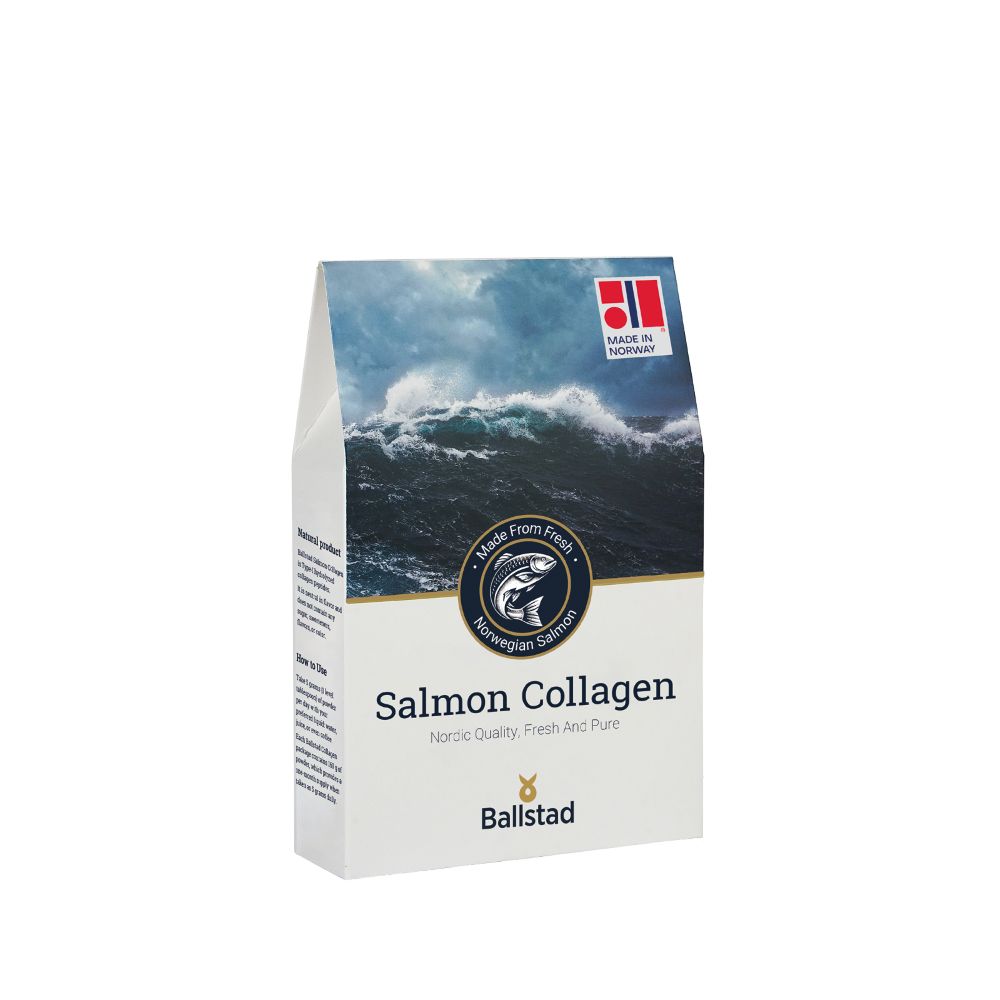Pregnancy: Between anticipation and uncertainty
Pregnancy is a special time for many women, one that can be filled with joy but also uncertainty. One of the biggest concerns is the risk of premature birth, i.e., a birth before the 37th week of pregnancy. The exact causes are varied – from genetic factors and chronic illnesses to lifestyle factors such as smoking or obesity.
Scientific studies on premature birth and omega-3 fatty acids
Numerous studies examine how certain dietary patterns or nutrients can contribute to overall health during pregnancy. A common focus is on the omega-3 fatty acid DHA (docosahexaenoic acid), which occurs naturally in oily fish.
A recent analysis published in the European Journal of Clinical Nutrition examined DHA levels in 142 pregnant women in New Zealand. The study showed that DHA levels were comparatively high in this population, which was attributed, among other things, to regular fish consumption.
Importance of an individual DHA status
A balanced DHA status during pregnancy is increasingly viewed as an interesting area of research. Some studies examine the extent to which a specific DHA level can be associated with a lower risk of certain pregnancy complications. However, a reliable conclusion on this can only be drawn using scientifically proven methods and taking individual factors into account.
DHA as part of a balanced diet
Adequate DHA intake can be achieved through the consumption of marine fish such as salmon, mackerel, or herring, as well as through specially fortified foods. Women who are unsure whether their diet contains sufficient DHA can seek advice from a healthcare professional. An individually tailored approach—including possible fatty acid profile testing—can help better assess personal needs.
What does research say?
A review published in 2018 ( Cochrane Review ) examined 70 randomized trials involving approximately 20,000 pregnant women. The study analyzed associations between omega-3 fatty acid consumption and various parameters such as the timing of delivery, birth weight, and overall postnatal health. While such studies may point to important findings, they should not be understood as a direct recommendation for dietary supplements in the legal sense.
Conclusion
Research on omega-3 fatty acids and pregnancy is constantly advancing. Individualized advice from medical professionals and a balanced diet play a key role in overall well-being during pregnancy. Scientific findings can be supportive in this regard, but should always be viewed in the overall context.
References: OmegaQuant


